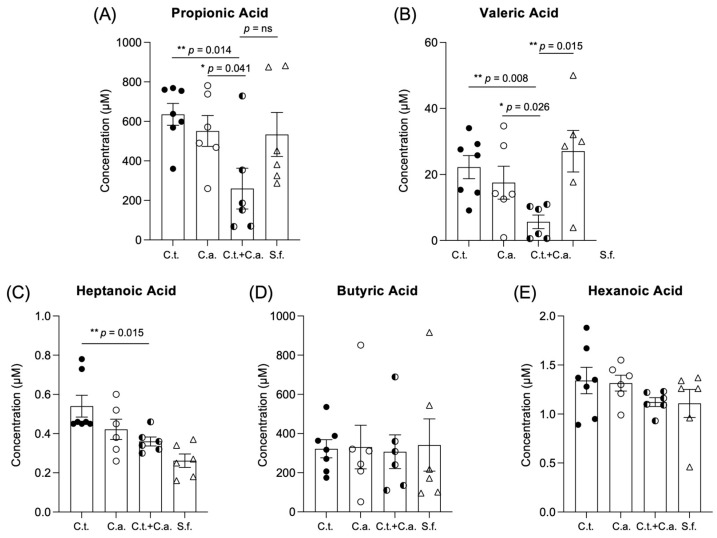Figure 3.
C. tropicalis and C. albicans co-colonization alters production of short-chain fatty acids by gut microbiome. Gas chromatography/mass spectrometry (GC/MS) analysis indicates decreased levels of the following: (A) propionic acid in fecal samples of co-inoculated mice compared to mice challenged with C. albicans alone (unpaired t-test: 259.6 ± 103.1 vs. 551.4 ± 78.18; p < 0.05) or C. tropicalis only (259.6 ± 103.1 vs. 635.4 ± 55.45; p < 0.02); no differences were found between co-inoculated mice and control group (259.6 ± 103.1 vs. 533.8 ± 111.4; p = ns). (B) Valeric acid in co-inoculated mice compared to mice challenged with C. albicans alone (5.653 ± 2.072 vs. 17.520 ± 4.983; p < 0.05), C. tropicalis alone (5.653 ± 2.072 vs. 22.230 ± 3.480; p < 0.02), or control group (5.653 ± 2.072 vs. 27.060 ± 6.288; p < 0.02). (C) Heptanoic acid in co-inoculated mice compared to mice challenged with C. tropicalis alone (0.360 ± 0.023 vs. 0.540 ± 0.056; p < 0.02). No differences were found between groups in terms of (D) butyric acid or (E) hexanoic acid (p = ns). Data are expressed as mean ± SEM; N ≥ 6/group; * p < 0.05, ** p < 0.02.

